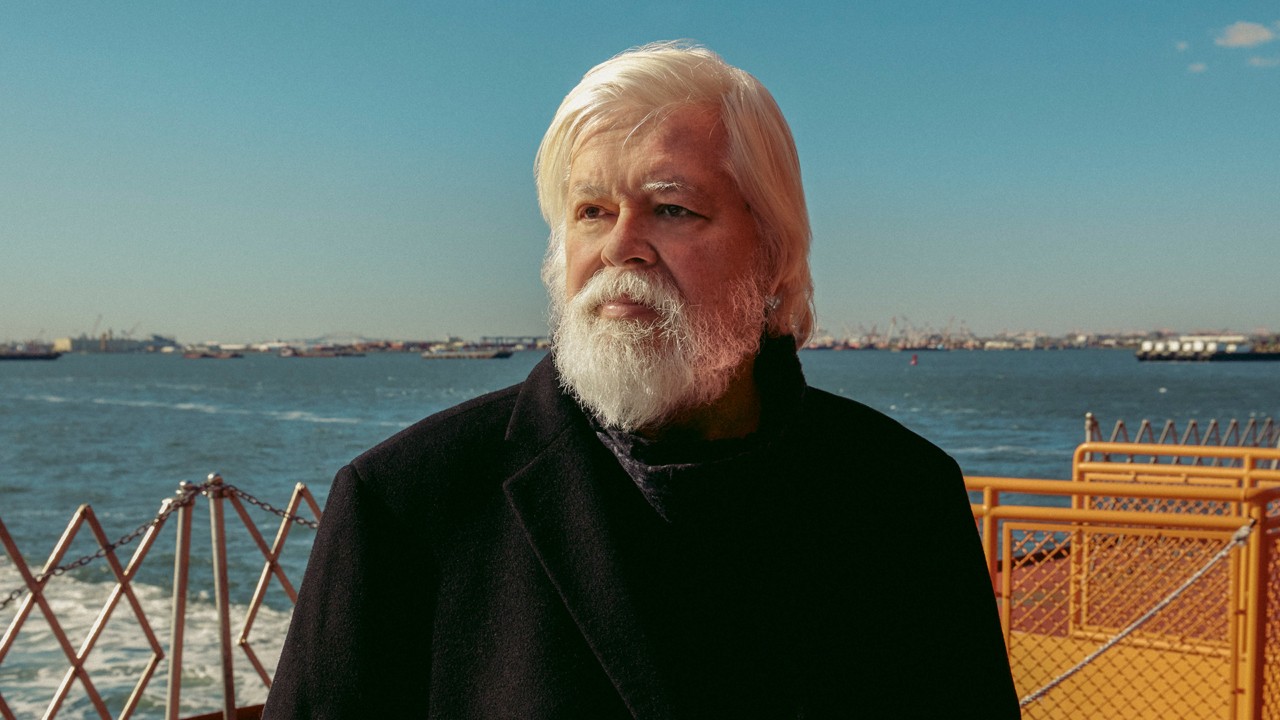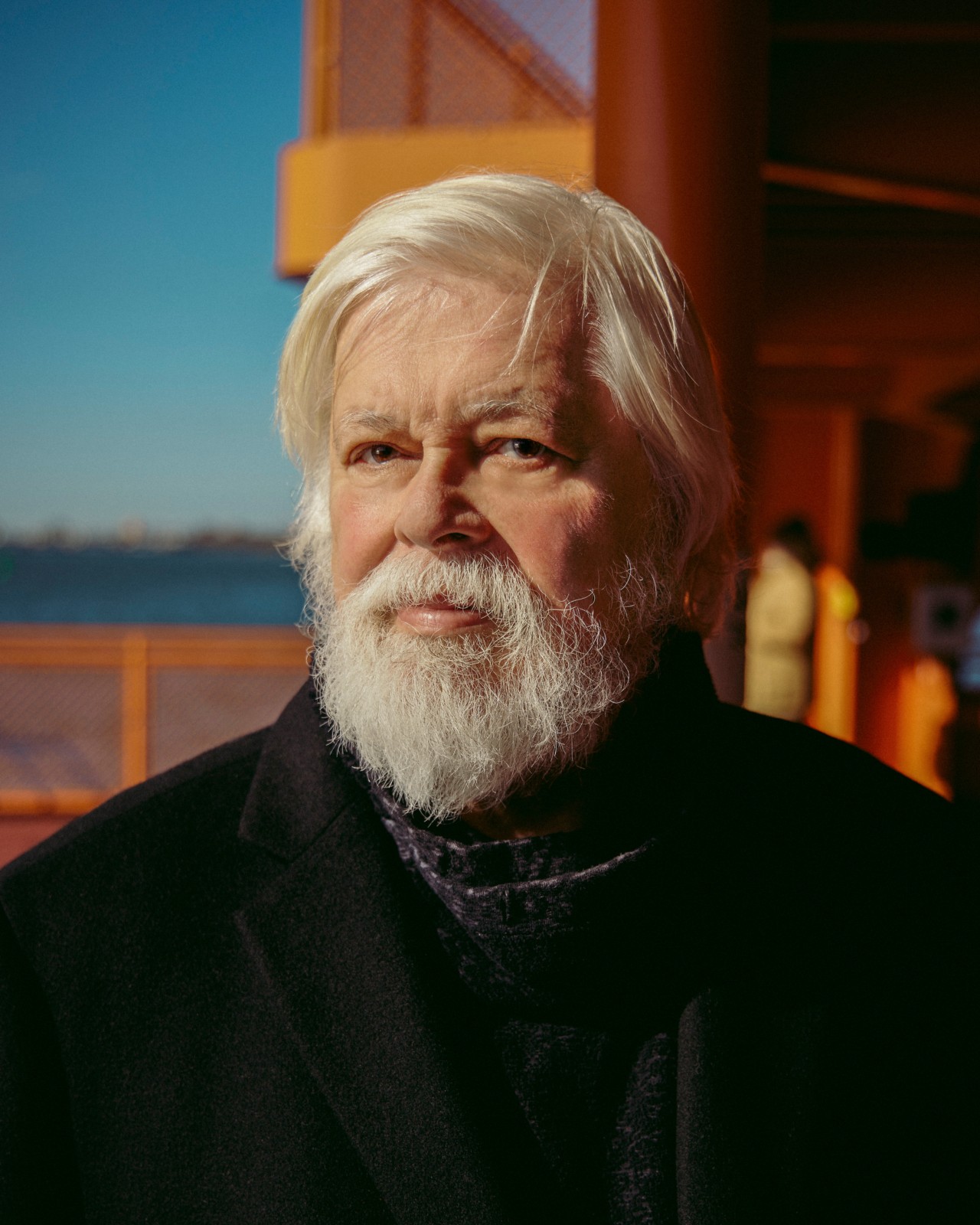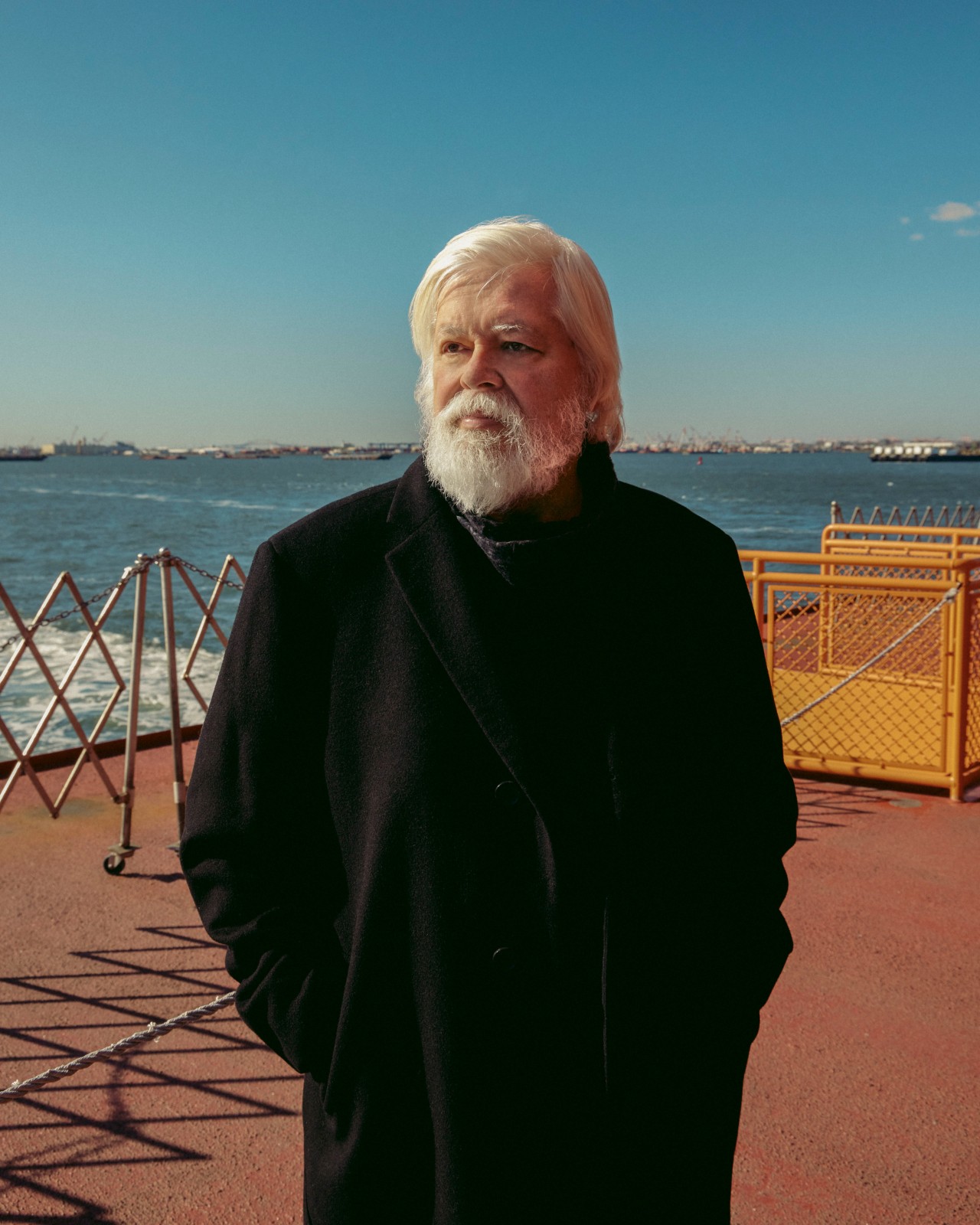

Photograph by Damien Fry / Captain Paul Watson Foundation
WORDS BY LAMYA ESSEMLALI
Lamya Essemlali is the president and cofounder of Sea Shepherd France. This Points of View article reflects her opinions, not necessarily those of Atmos.
On Sunday, July 21, 2024, Paul Watson’s ship, the John Paul DeJoria, docked in Nuuk, Greenland to refuel before heading to the North Pacific. As soon as the engines turned off, 14 police officers, who had just arrived from Denmark to intercept him, boarded the ship, handcuffed Watson, and took him into custody. As of today, Watson has been held in prison in Nuuk for 51 days. Last week, a Nuuk district court extended his custody until October 2—a decision Watson and his legal team have appealed to the Greenland High Court, according to AP. Watson could face up to 15 years in prison.
Watson was on the way to block the Kangei Maru, a brand-new, 9,300-ton Japanese “mothership”, as it embarked on a whale-hunting expedition in the North Pacific. The ship, which was inaugurated by Japan this May, cost the nation a staggering price: roughly $50 million. How such an abomination could be built in 2024—while whales are still hardly recovering from centuries of hunting—is baffling. A few days after Watson’s arrest, the fleet that he intended to stop killed a 19.6-meter, 55-ton endangered fin whale—the first of its species to be killed in the past 50 years.
Watson has been fighting for the whales since he founded Sea Shepherd in 1977, though today, he only remains involved with Sea Shepherd Brasil and Sea Shepherd France—the latter of which I cofounded and continue to serve as president. We’ve been friends and colleagues for 20 years, using direct action to protect the world’s oceans and marine life. I’m writing this in Nuuk, where I traveled to visit Watson and help with his legal defense. While he is detained, he’s given me power of attorney. He, his legal team, and I insist that his arrest rests on—and has been upheld by—fabricated evidence.
The Danish police arrested Watson based on a warrant issued by Japan in 2012. It accuses Watson of “conspiration of trespassing”, “injuring and destruction of property,” and “obstruction to business,” during events said to have happened on February 11 and 15, 2010, while Watson was leading one of his many antiwhaling campaigns in the whale sanctuary in Antarctica.
The warrant, however, doesn’t tell the full story.
He, his legal team, and I insist that his arrest rests on—and has been upheld by—fabricated evidence.
The events leading to the warrant started a month earlier, in January 2010. On January 6, the harpoon vessel Shonan Maru 2 had allegedly rammed and cut in two the Ady Gil, a ship that belonged to Pete Bethune, an activist from New Zealand who had joined Watson and Sea Shepherd on a mission. On February 11, Bethune threw a harmless stink bomb made of rotten butter onto the Shonan Maru 2. A Japanese whaler, the very one who rammed the Ady Gil, claimed he was injured by the stink bomb, despite footage showing he was not even standing on the deck at the time. Watson, based in part on this video evidence, appealed his arrest in Greenland, but at his court appearances in August and September, the judge refused to view it. Instead, the court made its decision to extend Watson’s jail time until October, after which he might be extradited to Japan.
The warrant also accuses Watson of “destruction of property,” specifically a net that was cut by Bethune when he boarded the Shonan Maru 2 to present them with a bill to pay for his destroyed ship. The net cost $800. The Ady Gil is worth $2 million. Yet, Japan was never held accountable for the damage to the ship or the six people onboard who were nearly killed.
That only scratches the surface of the falsehoods and injustice. Japanese authorities arrested Bethune in 2010. While he was in prison, he made a secret deal with the Japanese prosecutor. He told them that Watson had ordered him to board the whaling vessel. In exchange for the testimony, his prison sentence was suspended. He didn’t realize that Japan planned to use his “confession” to go after Watson.
The arrest warrant’s charge of “conspiration of trespassing” is based on Bethune’s testimony—but in 2013, Bethune wrote an affidavit admitting that the testimony was a lie, muttered under the threat of prison time. Still, Interpol, the international police organization, never acknowledged that affidavit. They continued to track down Watson for almost a dozen years.
The senselessness of the arrest warrant is matched only by that of the issue Watson was fighting when he was implicated. Sea Shepherd was protesting the brutal slaughter of whales by the Japanese fleet. Japan announced in 2018 that it would leave the International Whaling Commission’s whaling moratorium, which had prohibited all commercial whaling on all species and populations since the mid-1980s. The Japanese government started bankrolling pricey marketing campaigns and subsidizing the nation’s whaling industry with taxpayer dollars. Yet, only a tiny sliver of Japanese people eat whale meat. The nation’s whaling programs have drawn the ire of international courts and the general public while bringing little benefit to its citizens—so why still do it?

Watson has done nothing but exercise his sacred right and fulfill his indispensable duty to fight for the common good.
The answer is, as it too often is, the interest of a powerful few overruling the interest of the many.
Behind Japanese whaling is a handful of influential former members of the government from the far-right, ultra-nationalist wing, holding on to highly compensated jobs and lifestyles that depend on the whaling industry. The distribution systems, from docks to markets, are networked by the Yakuza, as is the union that provides crew members to the nation’s whaling fleet.
The greed of a few causing spilled blood, suffering, dissent, and wasted public dollars—that is what this industry is all about.
Watson’s arrest raises the bigger question: What are we willing to do to save our planet? Are petitions and letters enough if governments are willing to watch the whales—the world—go to hell with a broken heart and a pile of sleeping pills?
Watson, defiantly, said no. He brought thousands on board with him. He showed those who felt powerless that there is another way, that what seemed impossible is, in fact, possible. He has always been ready to risk his life to defend the whales. That’s why Japan wants him behind bars so desperately—why he’s spent over 50 days in that prison in Greenland. But it’s also the reason that so many are coming to his defense.
Watson’s actions in 2024, in 2011, and all the years before, remind me of one of my nation’s core human rights documents: the French Declaration of the Rights of the Man and of the Citizen of 1793. The statement, which lays out the values of the French Revolution, concludes, “When the government violates the rights of the people, insurrection is for the people and for each portion of the people the most sacred of rights and the most indispensable of duties.”
Watson has done nothing but exercise his sacred right and fulfill his indispensable duty to fight for the common good. He did it as a citizen of Earth, as a neighbor—and protector—of the ocean’s voiceless giants. Locking him up for that is an insult to our freedom. It spits in the face of the more-than-human life we call kin. And I, for one, won’t stand for it.
Paul Watson’s Arrest Is an Insult to Freedom—and Nature
